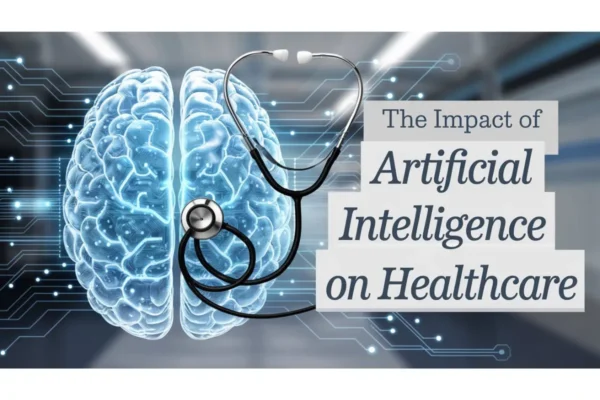
The Impact of Artificial Intelligence on Healthcare
Introduction: AI in Healthcare – A New Era Artificial intelligence (AI) is transforming the healthcare industry, bringing advancements that were once the realm of science fiction. From diagnosing diseases to personalizing treatment plans, AI is reshaping how we approach medicine. This blog explores the profound impact of AI on healthcare and what the future holds for this revolutionary technology. 1. Diagnosing Diseases with AI Early and accurate diagnosis is critical in healthcare, and AI-powered tools are enhancing diagnostic capabilities. Medical Imaging and Diagnostics: Predictive Analytics: Stat Check: AI-powered diagnostic tools have shown to be up to 95% accurate in detecting certain conditions like breast cancer, according to recent studies. 2. Enhancing Treatment and Personalized Medicine AI is making treatments more precise and tailored to individual patients. Personalized Treatment Plans: Robotic Surgery: Example: IBM Watson Health uses AI to provide oncologists with data-driven insights to improve cancer treatment plans. 3. Revolutionizing Patient Care AI is improving patient care through better monitoring and engagement: Virtual Health Assistants: Remote Patient Monitoring (RPM): Telemedicine Integration: 4. Streamlining Administrative Processes Healthcare systems often face inefficiencies, but AI is addressing this: Automation of Routine Tasks: Clinical Documentation: Why It Matters: Reducing administrative burdens allows healthcare professionals to focus more on patient care. 5. Overcoming Challenges with AI in Healthcare Despite its promise, AI in healthcare faces significant challenges: 1. Data Privacy and Security:AI systems rely on vast amounts of patient data, raising concerns about confidentiality and cybersecurity. 2. Regulatory Hurdles:Gaining approval for AI tools in healthcare is a lengthy process due to stringent safety standards. 3. Ethical Considerations:Questions about accountability arise when AI systems make critical healthcare decisions. 4. High Implementation Costs:Integrating AI technologies requires significant investment, which may be a barrier for smaller healthcare providers. 6. The Future of AI in Medicine The future of AI in healthcare is bright, with potential advancements including: Stat Check: By 2030, the global market for AI in healthcare is projected to reach $194.4 billion, according to Grand View Research. How You Can Benefit Whether you’re a healthcare professional or a patient, understanding AI’s role in healthcare can help you adapt to these changes: Further Reading: Explore World Health Organization insights on AI in healthcare.









